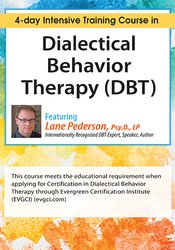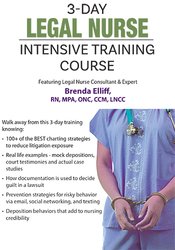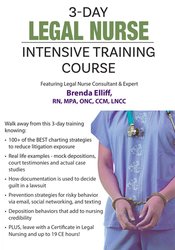2-Day-Rapid Response-Master the Critical Signs and Symptoms that Patients Provide – Rachel Cartwright-Vanzant
2-Day-Rapid Response-Master the Critical Signs and Symptoms that Patients Provide – Rachel Cartwright-Vanzant Download. This two-day intensive educational …
Original price was: $299.99.$64.00Current price is: $64.00.
Unlock your potential with the 2-Day-Rapid Response-Master the Critical Signs and Symptoms that Patients Provide – Rachel Cartwright-Vanzant course for only Original price was: $299.99.$64.00Current price is: $64.00. at WSOLib.com! Discover our vast library of over 60,000 downloadable digital courses across Health and Medical. Get expert-guided, self-paced learning and save over 80% compared to retail prices. Transform your skills today!
Salepage link: At HERE. Archive:
- Confidently identify the early warning signs of clinical deterioration
- The latest evidence to guide clinical management strategies
- Solutions to your biggest challenges documenting a patient crisis
- Secrets to early detection of change in patient condition
- Validate your interpretation of signs/symptoms and subsequent actions – using real patient crisis scenarios
- Bonus material: Rapid Response Quick Reference Cards
You walk into your patient’s room. There is a sick feeling that something just isn’t right. Do you dismiss this internal radar? OR… do you listen to your intuition and begin investigating? Recognizing early signs and symptoms of something going wrong is your best defense legally and your best response clinically to prevent a poor outcome for your patient. The better you understand how and why the body responds to “things not working right”, the earlier you can take the steps to intervene and possibly prevent the progression leading to an unfavorable outcome that may include death. Yes! Patients have died because of failure to rescue when the signs and symptoms were clear in the medical record.
This two-day intensive educational event will provide numerous clinical situations that represent all body systems that can and have led to poor outcomes because the signs and symptoms either were not recognized or were not treated appropriately. You will also learn from an expert in documentation how to chart when something goes wrong with your patient. Documentation is just as important as the care you provide and you will learn how to do just that as well.
- Point out critical anatomy, physiology, and pathophysiology concerns of nine body systems that could present a patient crisis.
- Specify differentials for selected clinical crises.
- Decide at least 5 actions that improve patient outcome if initiated early.
- Analyze real patient crises to identify early signs of clinical deterioration.
- Integrate labs, radiology, medications and other findings into your plan of care for a patient in crisis.
- Select indicators for the implementation of the Rapid Response System.
- Explain steps to follow to determine severity of patient condition and priority setting.
- Choose appropriate assessment parameters critical for accurate clinical diagnosis.
- Distinguish between a change in patient condition and a change in patient condition that warrants a rapid response team.
- Demonstrate key strategies to avoid future risk when documenting a patient crisis.
- Formulate personal solutions to your biggest documentation concerns.
- Integrate current evidence-based clinical management strategies for patient crisis.
- Plan for the most high-risk populations for in-patient emergencies.
Immunology/Hematology: DIC | HIT | Transfusion reactions
- Bleeding usually stops quickly. How do you know when to be concerned?
- Demystify the complex web of clotting
- Most transfusion reactions are minor.
- What if the reaction is immediate/major?
- Do you know what to do?
Cardiovascular: Pulse pressure | Recognition of valvular heart disease | Recognition of ACS | Complication of PCI | Hypertensive crisis | Acute vascular insufficiency | Cardiac trauma | Aneurysms
- Calculate pulse pressure in a case study
- Recognize audibly and identify anatomic locations for valvular dysfunction (sound examples)
- List key urgent steps to take when you recognize ACS
- My back hurts! My foot is numb! My chest hurts again!
- When is a BP “too” high? Every patient is different…
- Your MVA patient on a M/S floor may look OK on the outside – but inside can be another thing!
Endocrine: SIADH | DI | Ketoacidosis and HHS | Hypoglycemia
- Too much water, too little water. What does it all mean?
- Too much insulin, too little insulin. Can’t keep it straight?
Gastrointestinal: GI bleed | Acute pancreatitis | Liver failure and encephalopathy | Abdominal trauma | Bowel infarction, obstruction and perforation
- 5 tips to correctly identify significant nonspecific abdominal pain
- When confusion is not just getting old!
- All backed up and nowhere to go, can kill your patient. Don’t miss key findings that can save them
Behavioral / Psychosocial: Delirium | Dementia | Suicide | Substance withdrawal
- Nurses can affect the double “Ds”
- Would you recognize suicide intent in your patient?
- The substance your patient abuses affects the presenting symptoms of withdrawal
Neurology: Encephalopathy | Stroke | TBI | Skull fracture | Seizure | Meningitis
- 5 clues to encephalopathy
- Embolic vs. ischemic stroke
- When the brain swells, the skull leaves no room for guessing. Early s/s of neuro problems
- Seizures may come about suddenly – and sometimes they don’t stop
Renal: Acute renal failure | Life-threatening electrolyte imbalance
- What the kidneys do with all those electrolytes. Why it matters
Pulmonary: Perfusion | Acute respiratory failure | Status asthmaticus | Pulmonary embolism | Pneumonia | Aspiration | Pneumothorax | Hemothorax
- Early detection that enough oxygen is not getting to the blood stream
- Toxic substances interfering with oxygen exchange
- Rapid detection of a pneumothorax and hemothorax
Multisystem: Hypovolemic, Hemorrhagic, SIRS, Sepsis, and Septic shock | Anaphylactic shock
- 5 tips to recognizing s/s of early shock and possible etiologies
- Support failing compensatory mechanisms in a deteriorating patient
Secure your future with the 2-Day-Rapid Response-Master the Critical Signs and Symptoms that Patients Provide – Rachel Cartwright-Vanzant course at WSOLib.com! Gain lifetime access to expertly curated content, empowering your career and personal development.
- Lifetime Access: Enjoy unlimited access to your digital courses.
- Huge Savings: Prices are consistently up to 80% lower than original sales pages.
- Secure Transactions: Shop with confidence using our trusted payment methods.
- Actionable Knowledge: Acquire real-world skills from diverse topics.
- Instant Delivery: Start learning immediately after purchase.
- Device Flexibility: Access your courses on desktop, mobile, or tablet.
Begin your learning journey with WSOLib.com!
Specification: 2-Day-Rapid Response-Master the Critical Signs and Symptoms that Patients Provide – Rachel Cartwright-Vanzant
|
User Reviews
Only logged in customers who have purchased this product may leave a review.





There are no reviews yet.